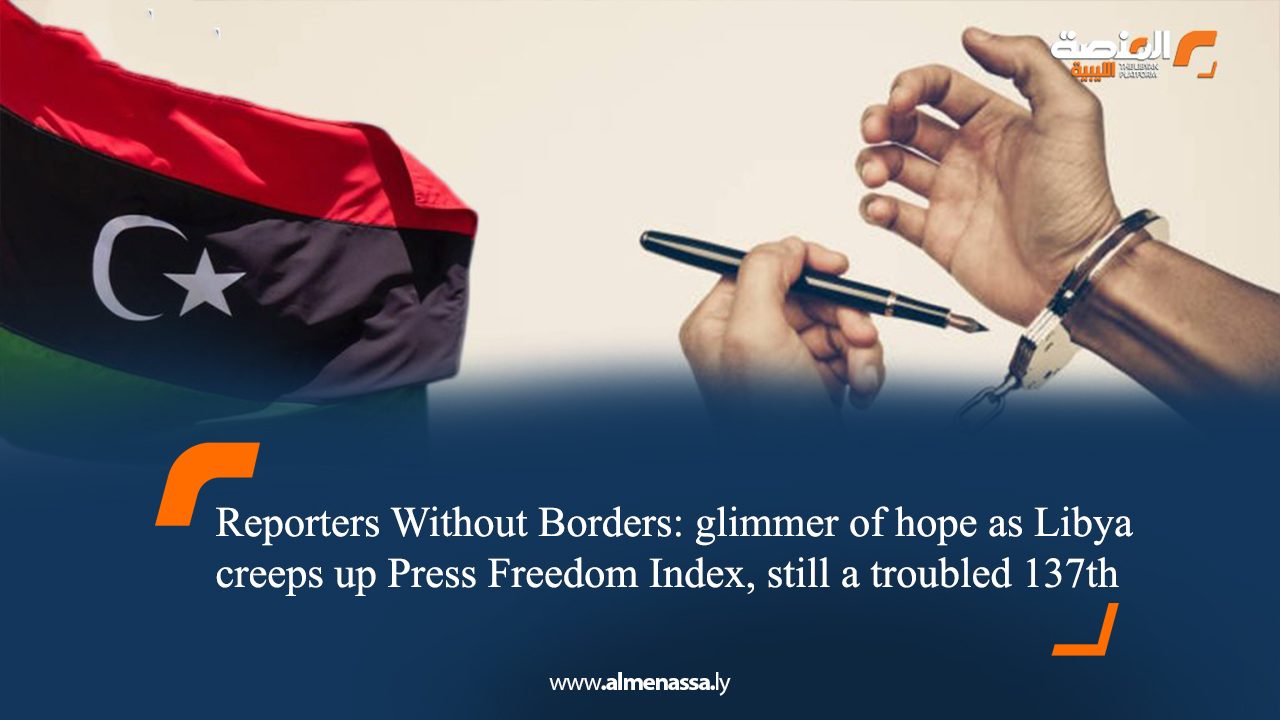Reporters Without Borders (RSF) has noted a marginal, yet significant, upward nudge for Libya in its latest annual index. The country now occupies the 137th slot for 2025, a tentative climb from its decidedly precarious 143rd position in the preceding year, 2024, within the ranking of 180 nations assessed worldwide.
The report from the press freedom watchdog indicates a modest six-point ascent in Libya’s index score, a development cautiously interpreted as a “slight improvement” in the overall climate for journalism and media within the fractured nation. However, RSF were quick to temper any undue optimism, stressing that despite this incremental progress, Libya remains firmly entrenched within the category of “difficult situations” for the press, where the diverse array of Libyan news outlets continue to navigate a perilous environment marked by recurrent and varied assaults that jeopardise their independence and their ability to operate without fear.
The RSF analysis further elaborated on the enduring hardships faced by journalists and media workers in Libya, who have for far too long been subjected to a chilling pattern of intimidation and threats, alongside the tangible realities of physical violence and insidious psychological harassment designed to silence dissenting voices and undermine their professional endeavours. While faint glimmers of a relative improvement have been detected since 2021, the report underscored that the escalating tide of violations targeting media actors often occurs within a climate of near-total impunity, emboldening those who seek to suppress the truth.
Compounding these challenges, the report highlighted the depressingly common practice of journalists in Libya being coerced into adhering to the ingrained biases and partisan agendas of the media organisations that employ them, a dynamic that inevitably contributes to the persistent dissemination of misleading information to the public. Furthermore, RSF pointed to the absence of any independent regulatory body tasked with overseeing the affairs of the press and media in the country, coupled with a glaring lack of a clear legal framework that would both guarantee the fundamental right to access information transparently and readily, and compel media outlets to uphold the core principles of pluralism and operational transparency. Perhaps most alarmingly, the report underscored the absence of any comprehensive legislation designed to safeguard freedom of expression, ensure the safety and security of journalists, and protect the public’s right to access reliable and accurate information.
RSF noted that some of the existing legal statutes pertaining to freedom of expression are archaic relics dating back over half a century, still clinging to the outdated practice of prescribing imprisonment for vaguely defined “press offences.”
The RSF analysis did not shy away from the uncomfortable truth that traditional media outlets in Libya have largely abdicated their role in providing the public with free, independent, and balanced information that genuinely reflects the multifaceted challenges confronting Libyan society across its diverse spectrum. Indeed, some of these very outlets have, regrettably, become platforms for the spread of extremism and various forms of hate speech, a deeply concerning trend that overshadows the emergence of several commendable initiatives within the country striving to cultivate a new media landscape characterised by greater independence and professional integrity.
In a regional snapshot, the Kingdom of Morocco was positioned at 120th , closely followed by Algeria also occupying the 126th spot, with Tunisia trailing slightly at 129th. In a particularly concerning assessment, the report categorised the state of press freedom in the Arab Republic of Egypt as being within the “very serious situation” bracket, without assigning it a specific numerical ranking within the index.
Kuwait was placed at 128th, Lebanon at 132nd, Oman at 134th, while Somalia languished at 136th, just one place ahead of Libya.
Globally, the third of May marks World Press Freedom Day, an annual moment for the international community to remind governments worldwide of their fundamental obligations to ensure the sanctity of press freedom and protect the rights of journalists. This day also provides an invaluable opportunity for media professionals to pause and reflect on the critical issues surrounding press freedom and the ethical principles that underpin their vital work. World Press Freedom Day serves as a powerful expression of solidarity with media outlets facing restrictions and oppression, denied their inherent right to operate freely, and as a solemn occasion to commemorate the courageous journalists who have tragically paid the ultimate price while carrying out their essential duty of reporting the truth and conveying information to the public.
In his poignant message marking World Press Freedom Day, United Nations Secretary-General António Guterres underscored the paramount importance of a free press in a world increasingly fractured by conflict and division. He stressed the fundamental truth that the freedom of all people is linked to the freedom of the press, which he described as the very backbone upon which the principles of accountability, justice, equality, and fundamental human rights are built. Guterres concluded his message by emphatically stating that a free and independent press serves as an indispensable public good for democratic societies. He passionately called for the necessity of empowering journalists everywhere to report news and facts with complete freedom, unburdened by fear, favouritism, or unwarranted interference. He issued a stark warning that when journalists are silenced or prevented from carrying out their crucial work freely and safely, it is society as a whole that ultimately pays the price and bears the profound loss


